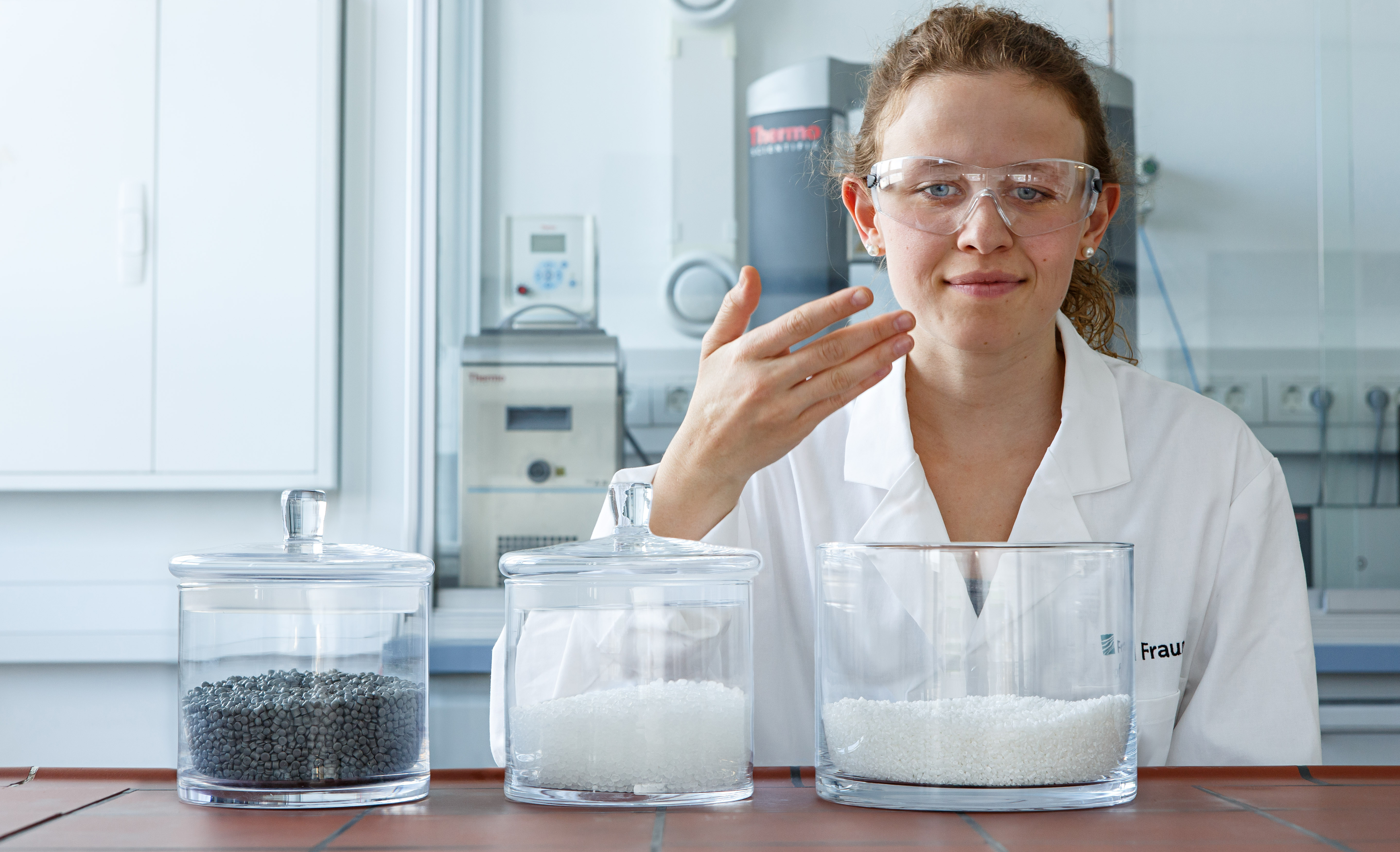Reduction of emissions from plastic recyclates through targeted additives


The use of recycled plastics in products still faces acceptance problems in the plastics processing industry and among customers in the market due to uncertain material qualities. One of the quality characteristics that is a focus of attention is the often unpleasant or unfamiliar odor. As part of the Fraunhofer Cluster Circular Plastics Economy CCPE, we are investigating the effectiveness of odor control additives and their interaction with antioxidants in polypropylene.
The research team has made remarkable progress in developing higher-quality plastic recyclates, particularly in reducing unwanted odors. The focus on equipping plastic recyclates with special plastic additives, known as odor scavengers or odor control additives, has the potential to significantly increase the acceptance and use of recycled materials.
The research scientists have successfully developed new methods for identifying and binding volatile compounds that are responsible for unpleasant odors. In addition, the influence of the compounds investigated on material stability was examined and evaluated. These innovations are crucial, as consumers and industry are placing increasing value on high-quality, odor-neutral products.
In collaboration with other institutes within the Fraunhofer CCPE, the team has developed new approaches to reducing odors in recycled plastics. This collaboration aims to positively influence user behavior by ensuring that the end products are not only functional but also pleasant to use.
The team is convinced that the work on equipping plastic recyclates with efficient odor control additives will make a significant contribution to the circular economy. By specifically combating odor problems, they promote sustainable resource use and support the industry in developing environmentally friendly solutions.
Fraunhofer CCPE